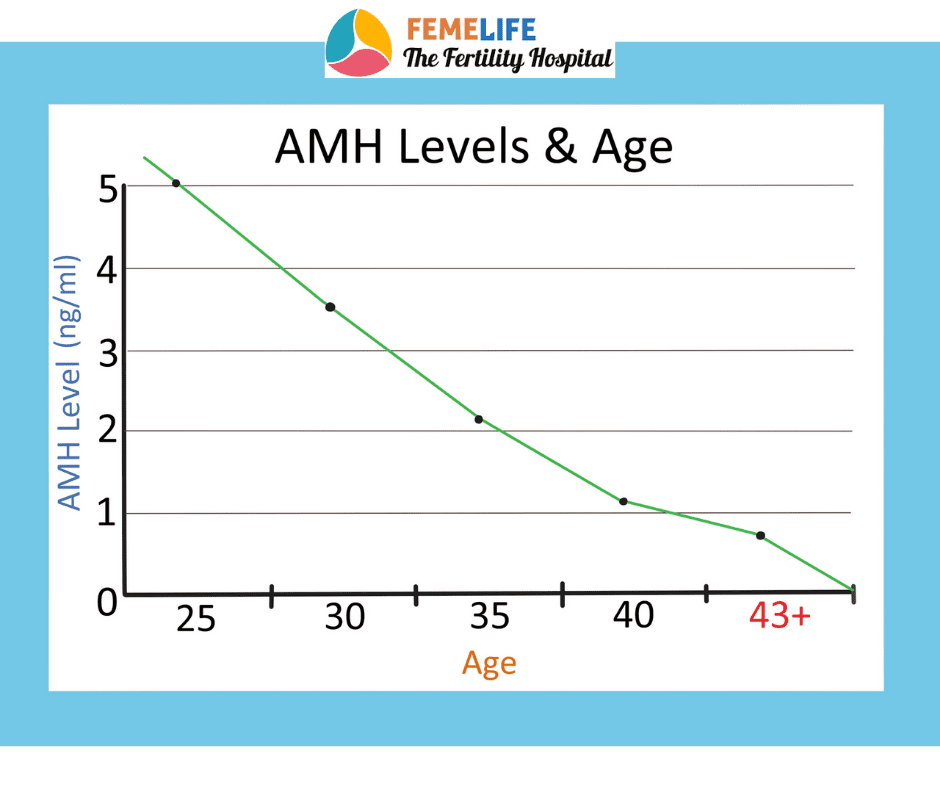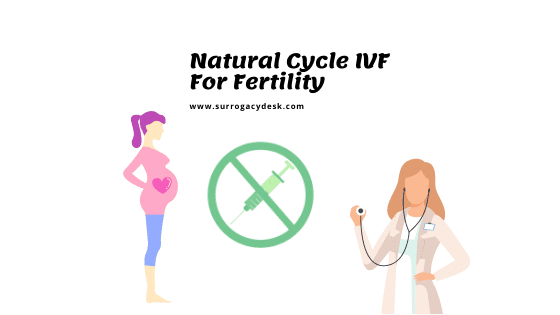What is AMH?
AMH or Anti-Mullerian Hormone is a hormone produced by the granulosa cells in the ovarian follicles. The production of AMH is reflective of the ovarian reserve.
Think that ovarian reserve is a basket of eggs. We are typically born with a basket full of eggs, those eggs get used up over your lifetime.
An AMH test can tell the egg count and quality of egg.
A low AMH level points to a diminished ovarian reserve (DOR) or low egg count, which is why AMH is linked to fertility. In other word, if DOR means the basket of eggs is starting to empty out.
Low AMH suggests DOR but isn’t definite. And also, AMH does not tell whether eggs are good or bad. Doctors will order for an AMH test to see the quantity of eggs but AMH doesn’t solve the fertility problems.
If AMH is low means it is possible the results of AMH screening may prompt people to electively freeze their eggs, extensive counseling on the meaning of AMH level is essential need to be explain.
What is AMH test?
Anti-mullerain hormone (AMH) is a simple blood test to analysis of women’s ovarian reserve and diagnose problems such as PCOD, early menopause, or low ovarian reserve.
Anti-mullarian can give some insight on the remaining quantity of eggs and duration of fertility, but no concrete information about the quality of eggs.
Anti-Mullerian Hormone (AMH) is a protein hormone made by the cells lining the follicles (sac that holds the eggs).
Low level of AMH indicates low ovarian reserve, while high levels of AMH suggested a bright future fertility probability. The AMH test has proved to be a good evaluator of a women’s ovarian reserve. AMH test levels are generally stable and not greatly affected by the menstrual cycle or pregnancy or oral contraception. The AMH test can be drawn nay time throughout the month.
AMH test yields accurate results when done in conjunction with the antral follicle count (AFC) test. The AFC test is to assesses the quantity and quality of eggs.
AMH reflects the number of egg have remaining in the ovary, the AFC and AMH are excellent guides to the estimate the number (quality) of the eggs you may have.
AMH test results
AMH test is a simple blood test. The measurement remains mostly stable throughout the cycle. So that doctors can order a test at any time of the cycle.
As a outline, the following levels are in nanograms per milliliter which is represent the lower limit of serum AMH values by age:
15-25 years old : 3.0 ng/mL
25-30 years old : 2.5 ng/mL
30-35 years old : 1.5 ng/mL
35-40 years old : 1 ng/mL
More than 40 age: 0.5 ng/mL
These levels are considered conservative estimates, and the cutoffs also depend on the lab. If any doubts means doctor should repeat the AMH level test.
The results levels should be reviewed with doctor who order the AMH test
The AMH levels below than 1.6 ng/mL predict a smaller number of eggs retrieved with IVF. AMH level below 0.4 ng/mL are severely low.
It’s also important to note the age of the patients, if age is high means the AMH level will be less
Relation of AMH to pregnancy changes with IVF treatment
The more eggs produced with IVF stimulation and retrieval, the greater reasonable number of good embryos to develop and transfer. When the eggs are fertilized by sperm, to get embryos not all the eggs will be fertilize, some of the good quality eggs will fertilize with sperm and change into embryos in IVF.
While lower AMH level do lower IVF success, that success rate is belong with the age and AMH test level.
But in young women with few eggs (low AMH level) should still have a higher percentages of golden ones, and therefore its better in IVF/ICSI. The AMH is low but have success chance in IVF/ICSI than other IUI or normal conception. But aged people mostly don’t have a chance.
An older person can have certainly, luck out and have a lot of eggs left, but a higher percentage of eggs will have lost their golden status through aging and may not results with embryos.
Why do I need an AMH test?
You may need an AMH test for women who are having difficulty getting pregnant. The AMH test can help show what chances are of conceiving a baby. Doctor may use the test to predict whether you will respond well to treatment such as IVF.
High AMH levels may means you may have more eggs, available and will respond better to treatment .
Low AMH level means few eggs available and may not respond well to treatment.
You may also an AMH test if you are a women with symptoms of PCOS. These includes:
- Menstrual disorder, including early menopause or amenorrhea
- Acne
- Excess body and facial hair growth
- Decreased breast food
- Weight gain
In addition you may need an AMH test if you are being for ovarian cancer. The AMH test can help show if your treatment is working.
What happens during an AMH test?
For AMH test, a health care professional will take a blood sample from a vein in arms, using a small needle. In AMH test After the needle is inserted, a small amount of blood will be collected in test tube. You may feel a little sting in AMH blood test when the needle goes in or out. AMH test usually takes less than five minutes.
Will I need to do anything to prepare for AMH test?
You don’t need to do any special preparation or anything for AMH test
Are they any risk for AMH test?
There is very little risk to having AMH blood test. You may have slight pain or bruising at the spot where the needle was put in but it go away quickly.


Read more








Pingback: Fertility Diet: Food To Increase Egg Quality | Surrogacy Desk